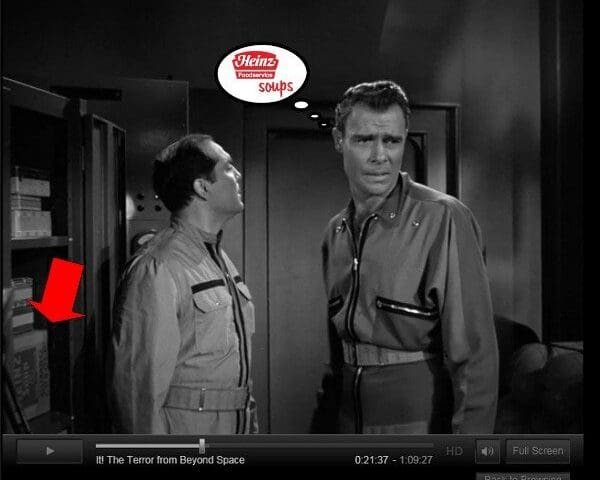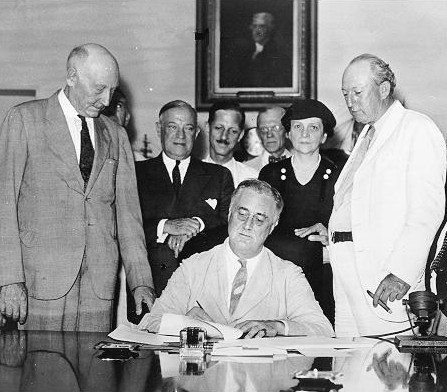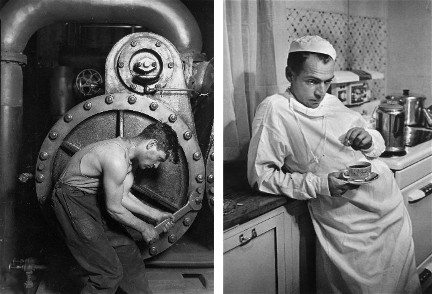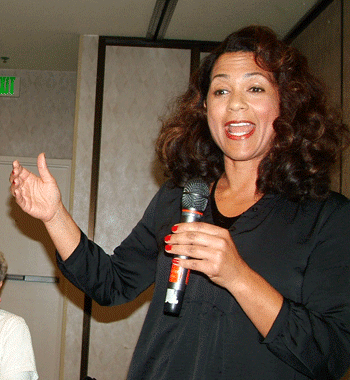

What is the trucking industry response to claims that port drivers are actually employees who have been stripped of their basic rights by trucking companies? Robert Digges, a spokesman for the American Trucking Associations, tripped on his own tongue on a CBS national news segment when he tried protesting the idea that trucking companies are cheating workers – and it’s getting picked up on blogs like the Daily Kos.
“They (trucking companies) believe they get a more productive employee – excuse me a more effective worker – a worker who is efficient, who has some skin in the game.”
So, the industry that dismantled the Los Angeles Clean Truck Program finally lets the truth slip: port truck drivers are actually employees who have had their rights stripped from them by greedy port trucking companies seeking to pad their bottom line.
“As long as we are independent contractors (the company) doesn’t have to cover benefits,
» Read more about: Trucking Industry Exposed for “Ripping Off” Workers and Tax Payers »


The other day I was streaming It!, an old science fiction film, and saw something odd on my computer screen. There, in the storage hold of the rocket ship returning from Mars, sat a crate of Heinz soup cans. The box was barely visible – blurry and jammed in the corner of a locker, next to all the cartons of cigarettes the crew members were smoking on their trip back to Earth. Still, we’re trained to notice product logos and I couldn’t miss Heinz’s distinctive lettering on its case of Creole Gumbo.
I was shocked that Heinz had even sold soup in 1958, when the film was made – let alone that they would figure in the story’s Tomorrowland of 1973. I did what any futuristic earthling would and Googled “heinz soup.” Sure enough, the company did sell a supermarket line in the 1950s, but eventually got out of the business except for its current Heinz Foodservice trade of selling tub-sized containers of Tomato Florentine to institutional clients.


Every few days I drag my trash and recyclables out to the big gray dumpster and blue bin in the back of my apartment complex. The materials get picked up, the bins emptied, and they’re out of sight and out of mind. But where does it all go? Few of us actually know where our piles of trash and recyclables end up, with whom they come into contact and whom they impact along the way. While it may seem as though our trash magically disappears each week after the point of collection, it often ends up burned or buried near schools or homes in our city – or it may take a long journey, ending up outside of our communities, regions, state or even country.
The first step in raising our consciousness about our trash problem is to track where our waste goes. Trash | Track, a project out of MIT that builds on previous work of the SENSEable City Lab and is inspired by the NYC Green Initiative,
» Read more about: On the Trail of Trash: Tracking Our Disposable Society »


As Janet Heinritz-Canterbury of the California Alliance for Retired Americans explains it, retirement in America has historically rested on a three-legged stool – the pension from your job, income from your own investments and assets, and Social Security.
But where are most Americans today in their ability to even contemplate retirement? Most of us no longer get pensions from our jobs; what investments we may have are losing money while home prices have declined; and now some members of Congress and possibly President Obama are out to substantially lower Social Security benefits.
According to the American Association of Retired People (AARP), a frightening 35 percent of Americans over 65 currently rely only on Social Security (an average person gets benefits of $14,000/year) to survive. On January First of this year and continuing for the next 19 years, an additional 10,000 people A DAY will be turning 65.
» Read more about: Retirement: Sitting on a One-Legged Stool »


Recently, we noted that our friends at American Rights at Work called for a boycott of Amazon.com. As friend-of-this-blog and renaissance-man-about-town Joshua Joy Kamensky notes, however, we need to be more careful with the B-word.
Boycotts are ubiquitous. Progressives boycott Wal-Mart because of its anti-worker practices and its impact on local economies. Conservatives boycott stores that say “Happy Holidays” instead of “Merry Christmas.” Los Angeles boycotts (kinda sorta) the state of Arizona over the anti-immigrant SB1070. Animal rights activists boycott Nestea for animal testing. Anti-Islamists boycott halal turkeys. Every time some politician says something idiotic or offensive, people dig up the donor list to that politician, and boycott the corporate sponsors.
But sometimes things get confusing. Are we boycotting Home Depot to get it to stop using old-growth redwoods,


It wouldn’t be Christmas without basketball. So goes the thinking in the NBA, as the players and owners reached agreement over the holiday weekend on a new six-year deal that will give us a shortened, 66-game season and the all-important marquee games on Christmas Day.
For all the discussion of the issues the past few months, writers have been quick to move from analysis of Basketball Related Income to breaking down the 2011 (barely)-2012 season. In part, that’s because all the details aren’t in, but here are a few links for your reading pleasure.
First up is a memo from National Basketball Players Association head Billy Hunter explaining the deal. Take the cheerleading with a grain of salt, of course, since Hunter’s been under fire and needs to tell players what they won after giving up some paychecks. (This is what everyone says,


“It’s not brain surgery.”
My cousin’s husband, Keith, says this to me a lot. He says it whenever he’s giving me complicated instructions on how to tackle some grueling home-repair process, usually one involving multiple steps and materials and equipment I’ve never heard of. And at that point I always picture myself standing over some inert patient on a gurney, bone saw in hand, wondering if I should go ahead and cut into their skull or wait for a trained professional, because as far as I’m concerned what he’s describing might as well be brain surgery, it sounds that difficult.
But for Keith it’s really not difficult. He’s done this kind of thing for years. He worked in residential construction for more than a decade and has remodeled every house he’s ever owned, generally more than once. He takes his own expertise and know-how completely for granted,


I don’t believe in empires. They don’t turn out well. They may last for a while – even a long while – but ultimately they collapse, and they don’t make most people’s lives much better in the process. Think Rome or the Ottoman Turks or the Spanish or the Brits. There are many reasons for the sad course of empires, but to me it’s about institutions.
We human beings organize themselves in one of two ways — as institutions or as associations. Institutions are usually big organizations that do big jobs where people get paid to do the work. Like governments and corporations. These institutions operate on protocols, make or sell lots of the same things, and need many customers or clients or constituents. Institutions run from the top down, which is why I think of them as triangles – the power of decision-making happens at the top, the rest of us follow the rules.


Fun fact: L.A. leads the nation in jobs—just the kind that most people don’t think of as jobs. We’re the national leader in “nonemployers:” entities relying on independent contractors rather than employees. As economist Jack Kyser explained in 2006, “a lot of people want to have a business but don’t want the headaches of actually having to employ people.” The Times cited Kyser in explaining that “businesses become nonemployers to avoid the costs of workers’ compensation, paid leave, health insurance and state taxes.”
In many cases this sort of practice is, not to put too fine a word on it, illegal. Starting in just a few weeks, though, the state has a powerful new tool to deal with these lawbreakers. SB 459 goes into effect on January 1, 2012, and it levies large fines against employers who willfully misclassify workers as independent contractors to avoid their legal and tax responsibilities.


(This feature first appeared on L.A. Progressive. Reposted with author’s permission.)
Having captured the public’s rapt attention in just two short months but now facing increasingly well-coordinated and sometimes brutal police crackdowns, the Occupy Movement faces hard questions about its lasting impact. What will Occupy 2.0 look like, many want to know, and how will it get there?
If a meeting this past weekend between representatives from a half dozen Occupy encampments in California and perhaps 200 members of the California Progressive Caucus is any guide, the Occupy Movement has already enlisted several generations of progressive activists who are eager to support, leverage, and amplify the Occupiers’ ground-breaking work.
The meeting was, indeed, a kumbaya moment, one that suggests that the movement has embedded itself deeply into the progressive political psyche.
Recertification Battle
Gathering at the California Democratic Party’s Executive Board meeting this past weekend in Burlingame,
» Read more about: “Occupy” Occupies California’s Democratic Party »